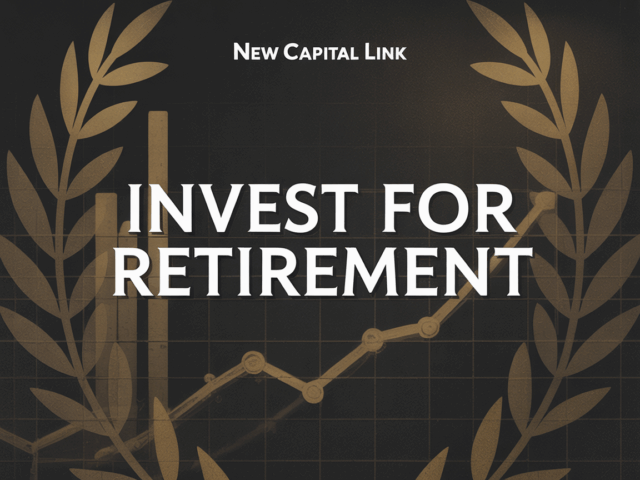The launch of ChatGPT has thrust the AI revolution into the spotlight, highlighting its potential to reshape our daily lives. While artificial intelligence isn’t a new concept, its long-anticipated integration into everyday applications is now accelerating rapidly. AI has become an expected feature in most software and web services, with major tech companies scrambling to incorporate it into their products.
This widespread adoption has naturally piqued investors’ interest, as they seek opportunities to capitalise on this transformative technology. In fact, global corporate investment in AI rose from $67.85 billion in 2020 to $93.5 billion in 2021, with private investment in 2022 exceeding $135 billion. In this article, we’ll explore the fundamentals of AI, its practical applications, and strategies for investing in this rapidly evolving sector in the UK.
What is AI?
Artificial Intelligence refers to computer systems designed to perform tasks that typically require human intelligence. These tasks include visual perception, speech recognition, decision-making, and language translation. AI systems learn from data, identify patterns, and make decisions with minimal human intervention. The concept of AI dates back to the early 1900s, with significant developments occurring in the 1950s, thanks to pioneers like Alan Turing and John McCarthy.
“Some people call this artificial intelligence, but the reality is this technology will enhance us. So instead of artificial intelligence, I think we’ll augment our intelligence.”
Klaus Schwab
What Applications Does AI Have?
Artificial Intelligence (AI) has emerged as a transformative force across industries, reshaping how we work, live, and interact with technology. The breadth and depth of AI applications are staggering, with the technology touching nearly every sector of the global economy. According to a report by PwC, AI could contribute up to $15.7 trillion to the global economy by 2030, more than the current output of China and India combined. This economic impact is driven by productivity gains from businesses automating processes and augmenting their existing labor force with AI technologies (contributing $6.6 trillion) and increased consumer demand resulting from AI-enabled products and services (adding $9.1 trillion).
Here is a few examples how AI is changing some of the UK’s most prominent industries

Healthcare
AI is revolutionising healthcare through various applications. In diagnosis, AI algorithms analyze medical images like X-rays, MRIs, and CT scans to detect abnormalities with high accuracy, often outperforming human radiologists in speed and precision. For example, Google’s DeepMind has developed an AI system that can detect breast cancer in mammograms with greater accuracy than human experts. In drug discovery, AI accelerates the process by predicting how potential drug compounds will interact with biological targets, significantly reducing the time and cost of developing new medications.
Companies like Atomwise use AI to screen billions of potential molecules daily, identifying promising candidates for further research. AI-powered chatbots and virtual assistants are improving patient care by providing 24/7 support, answering routine medical questions, and even assisting in mental health therapy. Woebot, for instance, is an AI chatbot that offers cognitive behavioral therapy techniques to users, helping them manage anxiety and depression.

Finance
In the financial sector, AI is transforming operations across various fronts. Algorithmic trading systems use AI to analyse market data in real-time, making split-second decisions to execute trades, optimising portfolio performance. Companies like Two Sigma and Renaissance Technologies are at the forefront of using AI in quantitative trading strategies. Fraud detection has been significantly enhanced by AI, with systems capable of analysing vast amounts of transaction data to identify unusual patterns and potential fraudulent activities. For example, Mastercard uses AI to evaluate over 75 billion transactions annually, reducing false declines by 50% while maintaining fraud detection accuracy. AI-powered robo-advisors are democratising investment management by providing personalised financial advice and portfolio management at a fraction of the cost of human advisors. Platforms like Betterment and Wealthfront use AI to create and manage diversified portfolios based on individual risk tolerances and financial goals.

Transportation
The transportation sector is being transformed by AI, particularly in the development of autonomous vehicles. Companies like Tesla, Waymo, and Uber are using AI for self-driving technology, processing data from various sensors to navigate roads safely. AI is also optimising traffic flow in cities; for example, Siemens’ Yunex Traffic uses AI to adjust traffic signals in real-time based on current traffic conditions, reducing congestion and travel times. In logistics, AI optimises route planning for delivery vehicles, considering factors like traffic, weather, and delivery priorities. UPS’s ORION (On-Road Integrated Optimisation and Navigation) system uses AI to optimise delivery routes, saving millions of miles driven annually and reducing fuel consumption.
These examples demonstrate how AI is not just a futuristic concept but a present reality, driving innovation and efficiency across multiple sectors of the economy.

Customer Service
AI chatbots and virtual assistants are revolutionising customer interactions, with 67% of consumers worldwide using AI-powered chatbots for customer support in 2021.
Creative Industries
AI can now generate art, music, and written content, pushing the boundaries of creativity. NVIDIA’s “Image Inpainting” can restore old and damaged photographs by filling in missing elements
How to Invest in AI
Individual Stocks
Invest in companies leading the AI revolution like NVIDIA, Alphabet, or Microsoft. These tech giants have made substantial investments in AI, contributing significantly to the overall funding landscape.
ETFs
Consider AI-focused ETFs for diversified exposure, such as the Global X Robotics & Artificial Intelligence ETF (BOTZ) or the AI Powered Equity ETF (AIEQ).
UK AI Companies
Look for promising UK-based AI startups and scale-ups. The total number of active AI companies in the UK has grown 161% since 2013, contributing £9.1 billion in gross value added (GVA) per year to the UK economy.
Venture Capital
Invest in VC funds focusing on AI technologies. Over the past three years, investors have poured $330 billion into more than 26,000 AI and machine-learning startups.
Cloud Computing
Companies like NexGen Cloud, an NVIDIA partner, offer exposure to AI infrastructure. The cloud computing market is expected to reach $1,554.94 billion by 2030, growing at a CAGR of 15.7%.
“AI companies are growing at an unprecedented rate. We saw NVIDIA briefly surpass Microsoft’s market cap on June 18th, showcasing the immense potential in this sector. Investors need to be aware of these rapid shifts in the market landscape. The AI market is expected to grow to $908.7 billion by 2030, with Generative AI projected to surge from $1.8 billion in 2022 to $33 billion by 2027, representing a compound annual growth rate (CAGR) of 80%.”
Rachel Buscall, CEO of New Capital Link,
What are the risks of investing in AI?
Market Volatility
The AI sector can be subject to rapid changes and hype cycles. Despite a decline in overall AI private investment last year, funding for generative AI surged, nearly octupling from 2022 to reach $25.2 billion.
Regulatory Uncertainty
As AI develops, new regulations may impact company operations. The EU’s proposed AI Act and similar initiatives worldwide could reshape the regulatory landscape.
Competition
The AI field is highly competitive, with the risk of rapid obsolescence. Big Tech companies like Amazon, Google, Facebook, Apple, and Microsoft acquired 13 AI startups in 2020 alone.
Ethical Concerns
AI raises issues around privacy, bias, and job displacement. However, contrary to fears of job loss, AI is expected to create around 97 million new jobs by 2025.
Some of the best AI stocks to consider investing in
NVIDIA (NVDA)
For Q1 fiscal 2025, NVIDIA reported record quarterly revenue of $26.0 billion, a 262% increase year-over-year.
Alphabet (GOOGL)
Google’s parent company is heavily invested in AI research and development.
Microsoft (MSFT)
A major investor in OpenAI, Microsoft is integrating AI across its product lines.
Amazon (AMZN)
Leveraging AI in its e-commerce platform and cloud services.
IBM (IBM)
A longstanding player in AI with its Watson platform.
Is AI a good investment?
While AI offers significant growth potential, it’s important to approach it with a balanced perspective. The global AI market is projected to reach $454.12 billion by 2025, indicating substantial growth opportunities. However, like any investment, it carries risks and requires careful consideration. AI firms in the UK support just over 120,000 full-time equivalent (FTE) employees, accounting for 0.5% of total jobs across the UK economy.
Is AI a Bubble?
While there’s excitement around AI, it’s backed by real technological advancements and practical applications. The AI investment landscape is witnessing a shift towards more considered and conservative funding, reflecting a maturing market where investors are more discerning in choosing projects.
What’s an example of an AI Investment?
NexGen Cloud stands out as an innovative company at the heart of AI cloud technology. As an NVIDIA partner, NexGen Cloud is building one of Europe’s largest GPU fleets, democratising access to accelerated compute globally. Their commitment to sustainability, with 100% renewable energy-powered infrastructure, aligns with growing ESG concerns among investors. NexGen Cloud’s Hyperstack platform offers Enterprise-grade infrastructure to end-users and businesses around the globe, in a 75% more cost-effective manner.
If you want to be considered for the chance to apply to invest in nextgen cloud, you should contact new capital link who are acting as an introducer for this particular round of funding.
Frequently Asked Questions
How can I start investing in AI in the UK?
To start investing in AI in the UK, you have several options. You can invest in AI-focused Exchange-Traded Funds (ETFs), purchase individual stocks of companies heavily involved in AI development or implementation, or invest in technology mutual funds that have significant AI exposure. For more personalised guidance and access to a wider range of AI investment opportunities, you might consider contacting a company like New Capital Link. Such firms often have specialised knowledge in emerging tech sectors and can provide tailored investment strategies. However, it’s important to thoroughly research any investment firm and understand their fees and approach before proceeding.
What are the top AI ETFs available to UK investors?
Some of the top AI ETFs available to UK investors include the L&G Artificial Intelligence UCITS ETF, WisdomTree Artificial Intelligence UCITS ETF, and iShares Automation & Robotics UCITS ETF. These funds offer exposure to a range of global companies involved in AI development and implementation. However, availability may vary depending on your broker. For a more comprehensive list and personalised recommendations, you might want to reach out to a specialised investment firm like New Capital Link. They can provide insights into newer or more niche AI-focused ETFs that might align with your investment goals.
How does AI impact different sectors of the UK economy?
AI is having a profound impact on various sectors of the UK economy. In finance, AI is being used for automated trading, fraud detection, and personalised financial services. The healthcare sector is benefiting from AI-powered diagnostic tools, drug discovery processes, and personalised medicine approaches. In manufacturing, AI is driving advancements in robotics, predictive maintenance, and supply chain optimisation. Retail is seeing AI applications in personalised recommendations, inventory management, and customer service chatbots. The transportation sector is being transformed by developments in autonomous vehicles, route optimisation, and predictive maintenance for vehicles and infrastructure.
What are the potential returns and risks of AI investments?
AI investments offer potential for high returns due to the rapid growth and increasing adoption of AI technologies across industries. There’s a possibility that AI-focused investments could outperform broader market indices as the technology becomes more integral to business operations and innovation. However, these investments also come with significant risks, including volatility due to rapid technological changes, regulatory uncertainties, potential overvaluation, and concentration risk. To better understand these risks and potential returns in the context of your personal financial situation, consider consulting with a specialised investment firm like New Capital Link. They can provide a more detailed risk assessment and help you balance your portfolio accordingly.
How can I stay informed about AI developments and investment opportunities?
To stay informed about AI developments and investment opportunities, follow reputable AI-focused news sites, blogs, and academic publications. Attend AI conferences, webinars, and local meetups to network and learn from experts. Join AI-related investment groups or forums to discuss trends. Monitor reports from major consulting firms and set up news alerts for AI-related topics. For more curated and actionable investment insights, you might consider subscribing to newsletters or advisory services from firms specialising in tech investments, such as New Capital Link. These companies often provide regular updates on AI trends, emerging opportunities, and potential risks, which can be valuable for making informed investment decisions in this rapidly evolving sector.
Alternative Investment London
New Capital Link, based in London, specialises in connecting investors with cutting-edge investment opportunities, including in the AI space. With a deep understanding of the UK’s AI ecosystem, New Capital Link can help investors navigate this complex but potentially rewarding sector. The UK’s AI sector is attracting more investment than the net zero economy, with significant contributions to productivity and innovation. Whether you’re interested in established AI giants or promising startups like NexGen Cloud, New Capital Link provides the expertise and connections to help you make informed investment decisions in the rapidly evolving world of AI.






